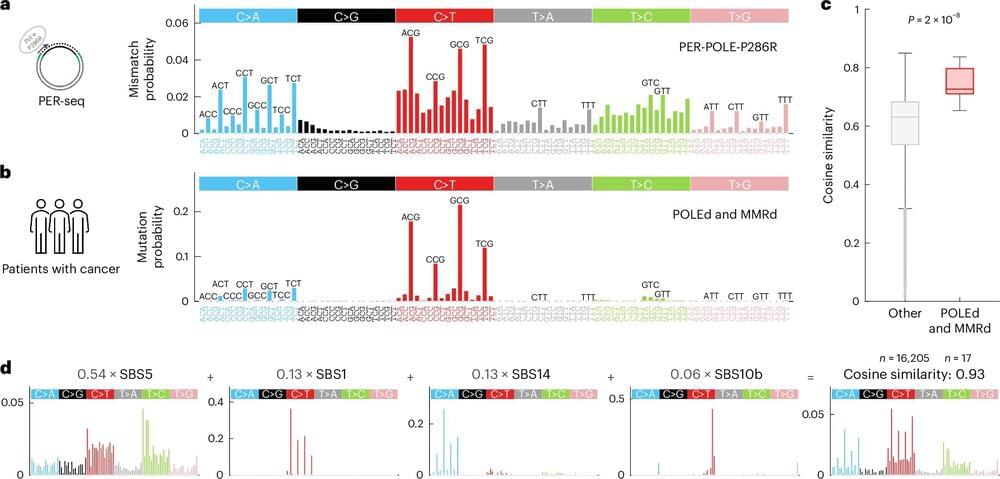A Ludwig Cancer Research study has punctured a longstanding assumption about the source of the most common type of DNA mutation seen in the genome—one that contributes to many genetic diseases, including cancer.
Led by Ludwig Oxford Leadership Fellow Marketa Tomkova, postdoc Michael McClellan, Assistant Member Benjamin Schuster-Böckler and Associate Investigator Skirmantas Kriaucionis, the study has implications not only for basic cancer biology but also for such things as assessments of carcinogenic risk associated with environmental factors and our understanding of the emergence of drug resistance during cancer therapy. Its findings are reported in the current issue of Nature Genetics.
The mutation in question—in which cytosine ©, one of the four bases of DNA that spell out our genes, is erroneously switched to thymine (T)—was thought to be primarily the result of a spontaneous chemical reaction with water. This reaction, deamination, is about twice as likely to happen when a cytosine is chemically tagged by the addition of a molecule known as a methyl group to create 5-methylcytosine, which occurs in DNA at so-called “CpG” positions, where C is followed by the base guanine (G).
